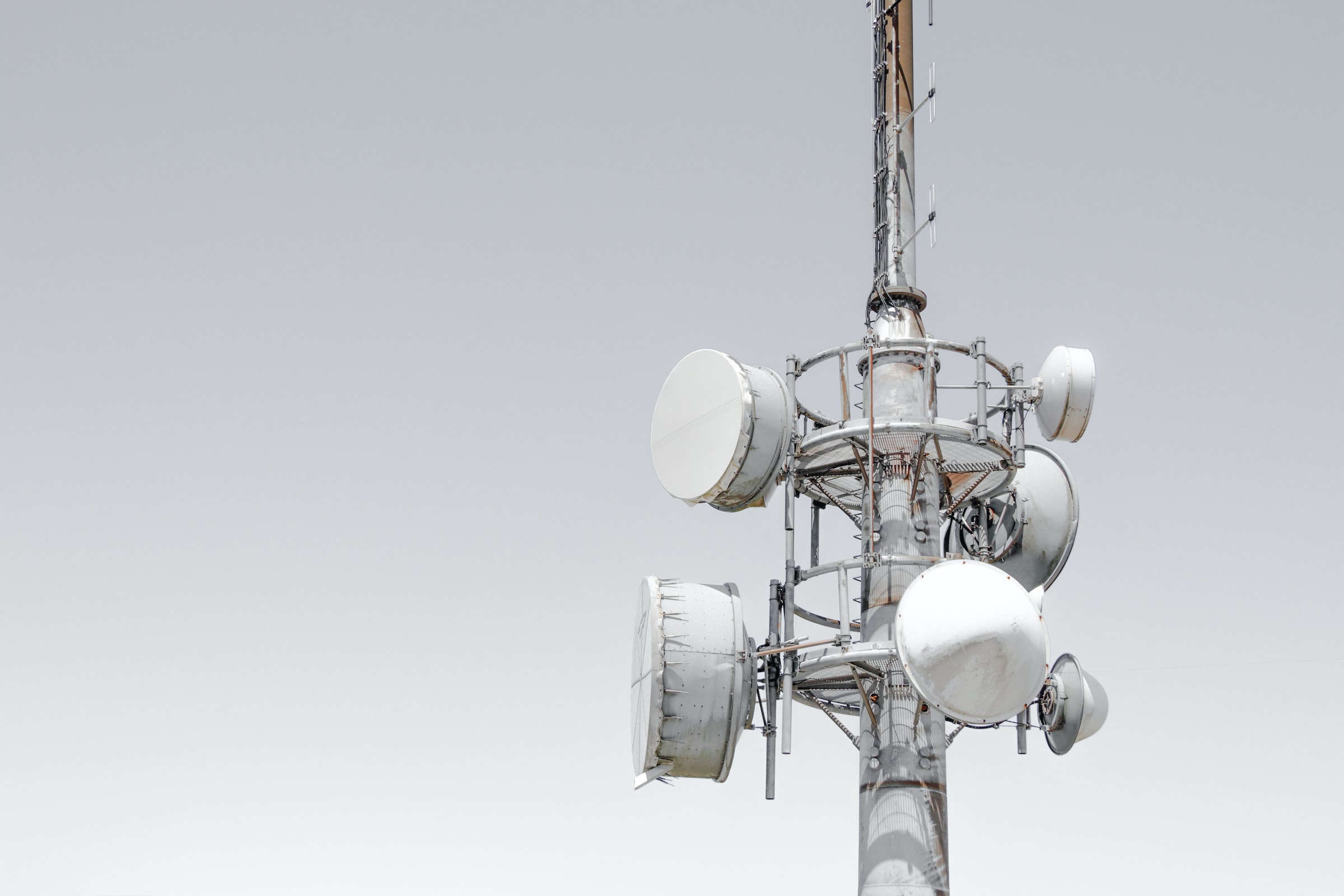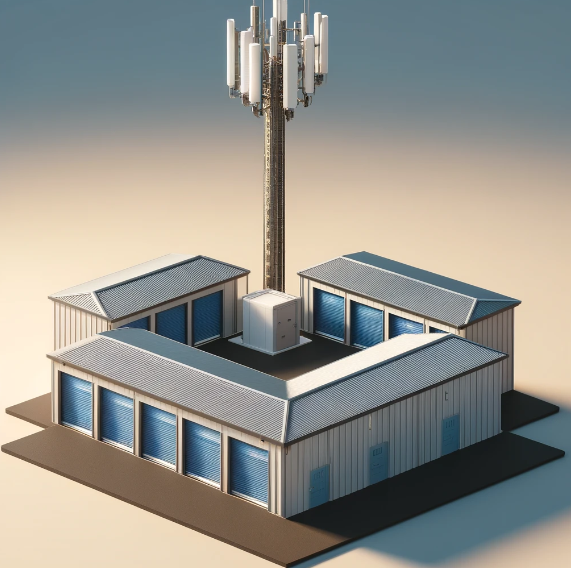Verizon Cell Tower Lease
By our estimate, Verizon has approximately 70,000 cell sites and another 50,000 to 75,000 small cells across the country. On an annual basis, we estimate that Verizon leases between 2,000 and 3,000 new sites. In 95%+ of these situations, Verizon is leasing the land or access to a tower or building or other structure. These Verizon cell site or cell tower leases are valuable. If you have come to this page looking to get a lease with Verizon or mistakenly found our page while trying to contact Verizon, please note that Steel in the Air is not connected to Verizon. You can contact them here: Verizon Network Real Estate.
Originally, Verizon (or its predecessors which include Air Touch, Alltel, Bell Atlantic, Cincinnati Bell, GTE, Nynex, PrimeCo, Qwest) directly leased land for placement of towers. However, over the last 20 years, Verizon has leased 15,000 towers or more to various tower companies including American Tower and Crown Castle.
To place a tower on a piece of property, Verizon enters a “ground lease” or “land lease” with the landowner that allows them to use the property for a fixed amount of time. In other cases, Verizon may negotiate a “collocation” lease to attach equipment to a cell tower owned by another party. In this article, we will deal primarily with Verizon’s cell tower land leases.

What Are the Key Parts of a Verizon Cell Tower Lease Agreement?
Contact Us
- The landowner agrees to lease a portion of land (i.e., the “lease area”) to Verizon for placement of a tower. For a self-support or monopole type tower, the lease area is generally 100’ x 100’ or less. For a guyed tower, the lease area may be up to a few acres due to the guy anchors. See our page on types of cell towers for more information. Verizon pays for the cost of all improvements to the property.
- The landowner also agrees to give Verizon 24/7 access to their lease area and a separate easement across the property for utilities. Typically, this is done via non-exclusive easements. A non-exclusive easement gives Verizon the right to share the use of a defined area of the rest of the property.
- Generally, the landowner does not have to provide utilities for Verizon’s use as Verizon will procure their own meter and pay for their own power.
- The landowner agrees to lease the property to Verizon for a period of 25 years. Typically, there are five 5-year terms. Verizon can terminate in most cases with less than 90 days, while the landowner is obligated for the full 25 years.
- Verizon pays the landowner rent monthly for the cell tower, although some leases are paid annually. The lease rate varies widely across the US. Verizon’s standard lease will escalate each year by 1-2%.
- The lease provides that the landowner is not allowed to interfere with Verizon’s use of the property.
- Both parties to the lease are required to have insurance. Verizon will have $2,000,000 in general liability coverage. They expect the landowner to also carry similar coverage.
- Verizon will remove the tower at the expiration of the lease.
- Verizon adds a “Right of First Refusal” clause to all their leases which means you can’t sell their lease to a third party without first giving them the chance to purchase it. See this page for more information on the Right of First Refusal clause.
- There is an anti-assignment clause that lets Verizon assign and sublease pretty much as they see fit; however, that prevents the landowner from assigning.
- The landowner is responsible for real property taxes on the entire parcel, but Verizon will pay personal property taxes for their equipment and may reimburse the landowner for a portion of the real property taxes that are “attributable” to their improvements.
- Verizon will add a non-disclosure clause to the lease that prevents landowners from disclosing the terms to anyone else. Why? Because they don’t want you sharing information about the lease with other landowners negotiating a lease.
- Unique to Verizon, they also add a ridiculous most-favored nation clause which states that if you enter a lease with another wireless company that is less than what they pay, the lease rate is reset to match the other lease.
- The last part of the Verizon cell tower lease is the exhibits. These typically include a Memorandum of the Lease which may be recorded with the county or city and which shows the location of the lease area on the property.
What are SITA’s Top Recommendations for a Verizon Cell Tower Lease Agreement?
Here are just a few of the suggestions we give our clients:
- Verizon should always be responsible for personal and real property taxes attributable to their improvements.
- Unless you carry insurance on your property already, you should never have to get a separate policy just to protect Verizon’s tower.
- The Right of First Refusal should be removed. If they won’t remove it, it should be narrowed so that it only applies to companies that operate cell towers or that purchase the leases underneath them. It should NOT prevent the sale of the entire property to anyone.
- You should be able to assign your lease or property to anyone without Verizon’s consent. If they need to include the right of first refusal clause to make sure they have first dibs on the lease, that’s fine – but there should never be a restriction on assigning the lease or selling the property.
We work with your attorney to review the lease and make sure that the agreement is as favorable to you as your situation allows. If you have the only property in the area and Verizon must enter into a cell phone tower lease with you, we will make more aggressive recommendations. If your property is one of many, we will recommend the most important changes.
How Can Steel in the Air Assist with Verizon Cell Tower Leases?
If you have received an offer to extend, you may have also received a request to lower the rent. You are probably somewhat familiar with lease renegotiation tactics (also called lease optimization). Verizon retains third-party optimization agents who will try to get you to agree to better lease terms (for them). They use certain “tricks of the trade,” like high-pressure sales tactics and implied threats of termination to convince you to agree to worse lease terms and conditions.
We will review the situation and:
We are experts on Verizon cell tower leases, since we’ve reviewed thousands of them over the years; we have assisted at least 500 landowners with Verizon lease agreements and proposals. Here what we can do for you:
1. Help you with Proposed Verizon Wireless Leases
You may have been contacted by a Verizon representative (aka, a site acquisition agent) regarding the construction of a cell tower on your property.
- We can advise you on the appropriate signing bonus, option payments, rent, escalation, revenue share, and lease duration terms.
- We can help you negotiate the best lease possible.
- We make sure you understand the pros and cons of entering such leases.
- We help you and your attorney review the lease document and we make suggestions (like the valuable ones above) so that you aren’t entering into a long-term mistake.
- We answer your questions before, during, and after the lease terms are negotiated.
2. Review Verizon Lease Extension and Renewal Proposals
If you already have a Verizon lease, you may have been contacted by Verizon’s agents looking to extend the lease. In most cases, you don’t need to extend the lease unless it is within 5 years of the final expiration of the lease. We are experts in valuing expiring leases since we have reviewed more than any other consultant.
Here’s what we can do for you:
- Figure out how much Verizon needs the site. Are there other towers nearby? Other rooftops?
- Determine how costly it would it be for them to move.
- Provide data on what Verizon pays for rent on other similar leases when they expire.
- Recommend how much the site is worth to them going forward.
- Advise on when the best time is to negotiate to get the best lease terms.
3. Review Verizon Lease Renegotiation Requests
- Figure out how much Verizon needs the site. Are there other towers nearby? Other rooftops?
- Determine how costly it would it be for them to move.
- Figure out the probability that Verizon would move their cell site or tower if you choose not to renegotiate.
- Review with you the pros/cons of renegotiating the Verizon Wireless lease.
4. Verizon Lease Buyouts
Eventually almost every lease holder receives an offer to purchase their lease. Most landowners are contacted by multiple companies who want to buy the lease. Some of these companies also try to persuade you that if you don’t sell, your lease will be terminated. We help landowners daily determine what their best options are.
We analyze your site location and:
- Determine whether the lease is at fair market value.
- Ascertain whether there is any risk that Verizon would terminate.
- Assess the value of the lease.
- Recommend whether it would be better to extend the lease or sell it.
- Help you realize the best price and terms if you decide to sell.
If you need help with anything regarding a Verizon cell tower lease, we are here to answer your questions. The initial call is free – and if we think we can’t help, we will tell you. You don’t owe anything until you sign a contract for services with us, and we have a variety of flexible options to suit your individual needs.










